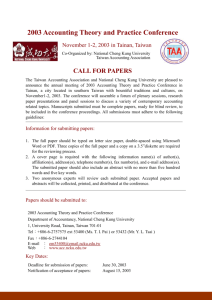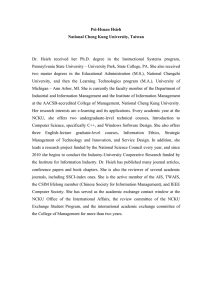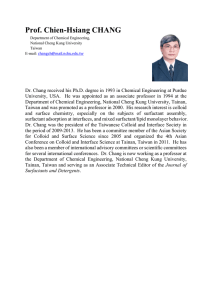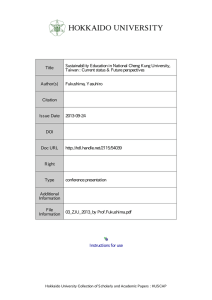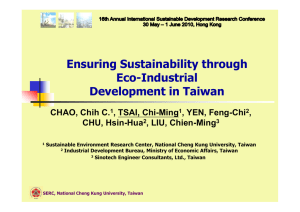Memorandum of Understanding with the National Cheng Kung
advertisement
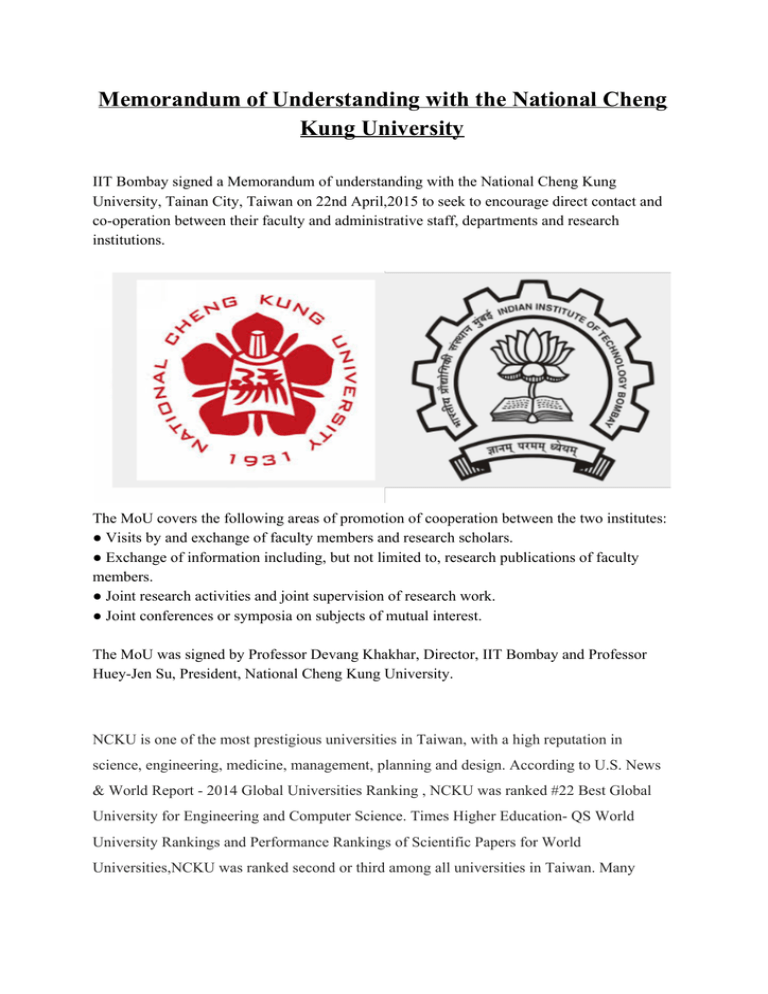
Memorandum of Understanding with the National Cheng Kung University IIT Bombay signed a Memorandum of understanding with the National Cheng Kung University, Tainan City, Taiwan on 22nd April,2015 to seek to encourage direct contact and co­operation between their faculty and administrative staff, departments and research institutions. The MoU covers the following areas of promotion of cooperation between the two institutes: ● Visits by and exchange of faculty members and research scholars. ● Exchange of information including, but not limited to, research publications of faculty members. ● Joint research activities and joint supervision of research work. ● Joint conferences or symposia on subjects of mutual interest. The MoU was signed by Professor Devang Khakhar, Director, IIT Bombay and Professor Huey­Jen Su, President, National Cheng Kung University. NCKU is one of the most prestigious universities in Taiwan, with a high reputation in science, engineering, medicine, management, planning and design. According to U.S. News & World Report ­ 2014 Global Universities Ranking , NCKU was ranked #22 Best Global University for Engineering and Computer Science. Times Higher Education­ QS World University Rankings and Performance Rankings of Scientific Papers for World Universities,NCKU was ranked second or third among all universities in Taiwan. Many surveys throughout the years have shown that its students are most desired by Taiwanese companies. NCKU has 9 colleges, 40 departments, 82 graduate institutes, and 54 research centers, and it is also a major university, educational, and area­network center in Taiwan. NCKU is among the four universities of Taiwan's Public Ivy­ the Taiwan Comprehensive University System. NCKU has 11 campuses: Cheng­Kung, Sheng­Li, Kuang­Fu, Cheng­Xin, Tzu­Chiang, Ching­Yeh, Li­Hsing, Dong Ning, Kuei­Jen, An­Nan and Dou­Liou Campuses. On January 12, 2011, the Y. S. Sun Green Building Research Center was inaugurated. It is the world's 2 first green educational center as well as Taiwan's first zero carbon building.The 4,800 m (52,000 sq ft)­facility cost NT$30 million (US$4.41 million) to construct, far below the original NT$180 million budget. Natural ventilation, limited power usage, reduced window size, and energy efficient lighting all contribute to the building's carbon neutrality. .
